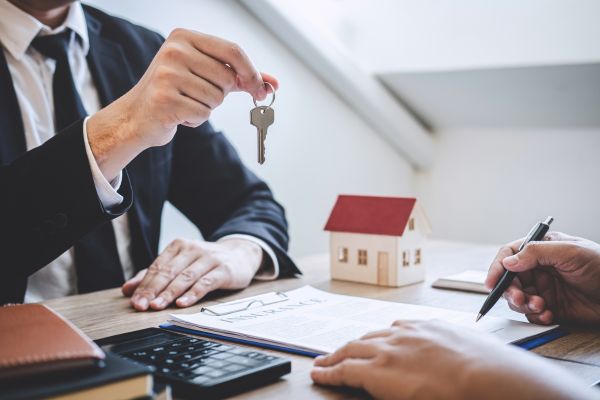The upfront costs of buying a home
There’s no denying that buying a home comes at a considerable upfront cost. At the time of writing this article, the average cost for a home in Australia exceeds $753,654, with major cities like Sydney and Melbourne coming out on top in having the highest property prices across the country.
But property prices are not the whole picture when it comes to buying a home in 2024. Homebuyers need to be aware of the handful of additional expenses involved that aren’t reflected in the ‘upfront cost’ that property sale prices display.
The hidden additional costs of purchasing a house
Purchasing a house isn’t as simple as buying a simple commercial product off the shelves. In reality, there are many steps to buying a house, each with a related expense for the requisite services required.
Registering a mortgage, conveyancing services, the interest cost of a loan, stamp duty, and other requirements all come with their own separate fees. Not accounting for these hidden costs when budgeting for your property purchase can throw a spanner in the works when it comes time to pay the bills.
2024 costs to buy a house
Here is an overview of the various types of costs that you may have to face when buying a home in 2024:
Mortgage registration
When it comes to buying a home, many buyers take up a mortgage to fund the upfront cost of the house. However, there is a mandatory government charge that needs to be paid when registering the security for a home loan on a property title — this is known as a mortgage registration fee. Essentially, this fee is required to add the mortgage details to the official record of ownership, making it publicly known that the property is being used as collateral for the loan.
Mortgage registration fees across Australia vary by state and are as follows:
| State / territory | Mortgage registration fee |
|---|---|
| NSW | $165.40 |
| VIC | $118.90 |
| QLD | $224.32 |
| SA | $187.00 |
| WA | $203.00 |
| TAS | $145.35 |
| NT | $165.00 + $64/additional title |
| ACT | $166.00 |
Loan application
Application fees for home loans generally range from $150 to $700, with the “Big Four” banks (Commonwealth Bank, ANZ, NAB, Westpac) often charging around $600. However, many lenders offer fee-free home loan options.
Lender’s mortgage insurance
When borrowing a home loan, some lenders will require buyers to purchase insurance from a private company. This insurance covers the lender, not the borrower, in the event that the buyer becomes unable to pay their mortgage, and is known as lender’s mortgage insurance (LMI).
This LMI cost can be paid in the form of a one-off upfront payment or added to monthly loan repayments.
Stamp duty
Stamp duty is a property tax that is levied on real estate purchases. The cost of stamp duty varies from state to state and is calculated based on a percentage of the property’s sale price.
It’s critical to be aware of how much stamp duty needs to be paid, as this cost can often come in the form of a huge lump sum amounting to tens of thousands of dollars. Use a stamp duty calculator to get an accurate estimate of the cost of stamp duty for your property purchase.
Conveyancing fees
Whether the property is a new home or an existing building, buyers will need to apply for the property to be legally transferred to their name. This process can be quite complex due to the strict legal regulations, which is why homebuyers often engage the services of a conveyancer to provide specialised guidance in finalising the property transaction. The average cost of a conveyancer’s services typically falls between $500 and $2,000.
Building inspections
Building inspections are what ensure the quality and value of the property, and are performed by qualified property experts. This service is an essential part of the property valuation process in making sure that the condition of the home is as stated. Estimated costs for building inspections in Australia are:
- Small apartment (up to 100 sqm): $200-$250
- Average 3-bedroom home in a regional area: $250-$350
- Larger 4-bedroom home in a regional area: $400-$500
- Large 4-bedroom home in a metropolitan area: $800-$1,000
Insurance fees
Building insurance is not mandatory in all states and territories in Australia. However, most mortgage lenders will require buyers to have it as a condition of the loan. Generally, the higher the value of the property, the higher the premium. Building insurance coverage ranges from damage due to events like fire, floods, storms, theft, vandalism, and earthquakes.
Some buyers also consider having contents insurance as part of their property purchase process. Content insurance protects belongings inside the property from damage, theft, or loss.
Council rates
Council rates, also known as local government rates or property rates, are taxes levied by local councils in Australia on owners of property within their jurisdiction. These fees are used to fund the services provided by the council, such as:
- Waste collection and recycling
- Road maintenance and construction
- Public parks and gardens
- Libraries and community facilities
- Planning and development
- Public health and animal control
Council rates are not fixed across all LGAs in Australia, and will vary depending on where the property is located. Buyers should check council rates online on council websites to find out how much they will need to pay.
Other considerations and costs when buying a house
Aside from the above costs, there are other cost considerations that don’t directly apply to the purchase or ownership of the house but should be kept in mind.
Moving costs
Buyers that are planning to move into the purchased property should consider moving costs as part of their overall budget. Moving within the same locale or city will cost much less and may not require the help of professional moving services, while moving across states will most definitely require a moving company to transport all your belongings.
- Local move (within the same city): $300-$1,000 (DIY) or $800-$2,000 (with movers)
- Interstate move: $5,500-$10,000 (with movers), significantly higher for larger distances and more belongings
Investment property fees
As for buyers that have purchased the property for real estate investment, there are specific fees that may apply on top of those incurred by owner-occupiers. Investment property buyers will be liable for an annual land tax that is levied on the property value. The rates for land tax vary by state and territory.
The cost for hiring a property manager to handle tenant recruitment, rent collection, and repairs should also be considered for investment property owners. Costs for property manager services can range from 5-12% of the rental income, plus potential vacancy fees.
Streamline your property purchase with Entry Conveyancing
In the process of purchasing, selling, or transferring property? Entry Conveyancing can provide affordable, effective, and efficient support in what is undoubtedly a very expensive period. Our team of conveyancers across Sydney and Melbourne can help you navigate the legal process of your property transfer. Get in touch with our friendly team today to learn more.






